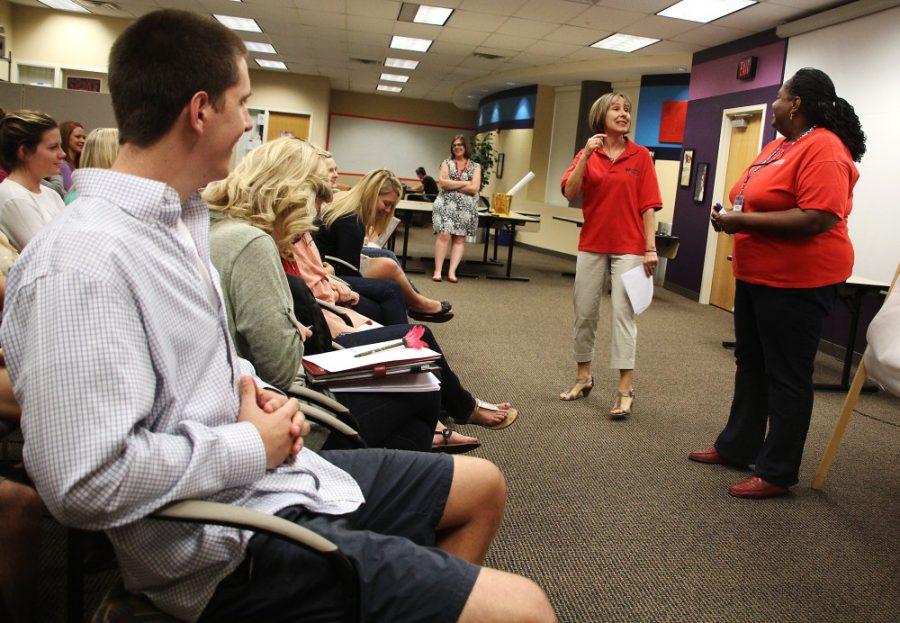Chapter leaders of Greek Life were taught how to spot and approach members with potential drug problems at an executive board training session for Drug Awareness Week on Tuesday.
Representatives from Campus Health Service, the University of Arizona Police Department and the Oasis Program, a relationship violence prevention program at Campus Health, taught at the event, which was hosted by the governing bodies of UA Greek Life. Greek Life’s Drug Awareness Week is meant to educate the greek community about the dangers of drug use, an issue especially close to home after the death of Phi Gamma Delta fraternity member Wilson Forrester from an accidental overdose.
Lynn Reyes, an alcohol and other drug prevention specialist at Campus Health, explained to attendees about the different categories of drugs — stimulants, depressants and others. Stimulants, she said, can raise a person’s heart rate, blood pressure and energy level, while depressants lower the functioning of the central nervous system and as more doses are added to the body, the brain is required to “depress” some function.
Stimulants include drugs like caffeine, methamphetamine, cocaine and ecstasy.
Depressants include alcohol, Xanax, narcotics and the “date rape drug” Rohypnol.
“If you’re looking for signs (of drug use), look for changes people are exhibiting. A change in mood, behavior, eating or sleeping habits can all be signs of drug use,” Reyes said.
Debra Cox-Howard, a mental health clinician at Campus Health, told attendees what to do if they see someone “not in good shape.” She said to get the person help by calling 911 and to not leave the person unattended.
“Do not, do not, do not leave them alone,” she said. “You never know what’s going to happen after you leave.”
The most common drugs reported to UAPD are alcohol, marijuana and cocaine, according to Joe Bermudez, a crime prevention specialist with UAPD. Bermudez said intervention is vital when spotting drug use.
“Don’t be selfish,” he said. “Bite the bullet, take some responsibility for your actions and get the person the help they need.”
Bermudez explained that UAPD’s “main concern” is the unresponsive person, not the alcohol use of the responsive person who called for help. He also said courts give “so many chances” to drug users, especially first-time offenders.
“You’re doing that person a disservice by not stepping in and getting someone else involved,” he added.
Campus Health representatives also spoke about their Friend 2 Friend program, which provides information and advice to those who wish to help a friend possibly experiencing drug, alcohol or self-injury problems.
Kelsey Hoyt, mechanical engineering junior and vice president of development for Kappa Alpha Theta, said the event provided resources in case sorority members “need help.”
“I also think it’s really nice they (Greek Life) are recognizing Will (Forrester), and that they are remembering him in a positive way,” she added.









